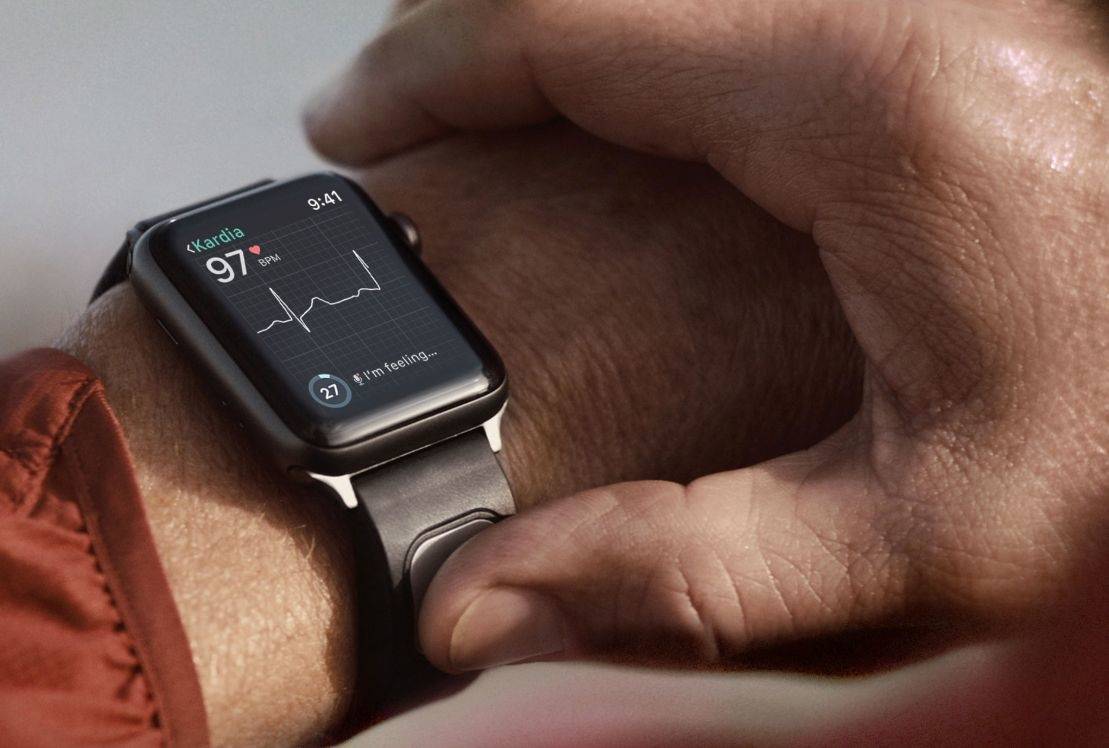Smartwatch band may help spot heart problems, but doctors still required

A smartwatch band with integrated electrodes to produce an electrocardiogram (ECG) might be able to help detect atrial fibrillation, but not as well as a traditional ECG machine used in a hospital, a recent study suggests.
Researchers compared results for 200 people who had ECG's done using both an FDA-approved smartwatch heart rhythm monitor called the AliveCor KardiaBand and a traditional ECG machine used in many doctors' offices and hospitals.
The band was manufactured to be used with Apple smartwatches. AliveCor doesn't sell them anymore, but many people are still using them.
When the band predicted atrial fibrillation, a common heart rhythm irregularity, it was correct about 55% of the time, the study found. And when the band predicted that people did not have atrial fibrillation, it was right about 98% of the time.
"Based on these findings, at this stage it would be recommended that healthcare professionals remain an integral part of the use of such technology in order to avoid unnecessary treatment and anxiety," said lead study author Dr Kevin Rajakariar of Box Hill Hospital and Monash University in Victoria, Australia in an email. "Although there is potential for population screening for atrial fibrillation and monitoring atrial fibrillation burden in those already diagnosed, at this stage, further studies are required to define the precise role of these devices within the healthcare system."
In atrial fibrillation, electrical impulses in the upper chambers of the heart are chaotic, causing the heart muscle to quiver rather than contracting normally. As a result, blood doesn't move as well through the heart. This can lead to formation of clots that can travel through the arteries to the brain and cause a stroke.
The wearable band produces an ECG reading when people who have it on a wrist place a finger from the opposite hand on an electrode on top of the band. This creates a circuit with an electrode on the back of the watch that's in contact with the skin.
Wearable devices like the smartwatch band that works with the Apple watch to take ECGs and detect heart rhythm disorders like atrial fibrillation are becoming increasingly popular with consumers, researchers note in Heart.
If proven to be accurate, these devices have the potential to be used to screen for heart rhythm disorders like atrial fibrillation at the population level, potentially identifying people who need to start taking blood thinners to lower their risk of stroke, the study team notes.
In the current study, researchers concluded that the smartwatch band with the ECG "demonstrated moderate diagnostic accuracy" when compared to a traditional EGC.
One limitation of the study is that participants had a much higher prevalence of atrial fibrillation than the general population, at 19% compared with just 2%-5% by most population estimates, the study team notes.
It's also possible that results might be less accurate at predicting atrial fibrillation when used by consumers on their own, outside the context of a clinical trial where they got support from researchers in using the device, the study team also points out.
"Recording and analyzing the rhythm using wearables could be an asset for the management of patients with atrial fibrillation," said Dr Khaldoun Tarakji, director of the Heart and Vascular Institute Center for Digital Health Technologies and Telemedicine at the Cleveland Clinic in Ohio.
Wearables like the band in this study might help diagnose patients who have intermittent episodes of atrial fibrillation, Tarakji, who wasn't involved in the study, said by email. They might also help monitor patients with the condition to determine what treatment they need or follow their symptoms after treatment.
"However, the concern with widespread use of these wearables among asymptomatic patients is the possibility of false positive results that can trigger more testing and unnecessary interventions," Tarakji said.
